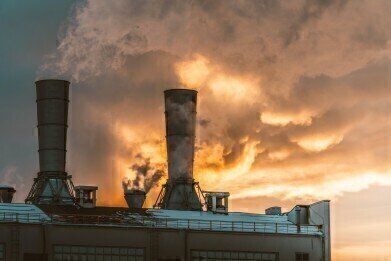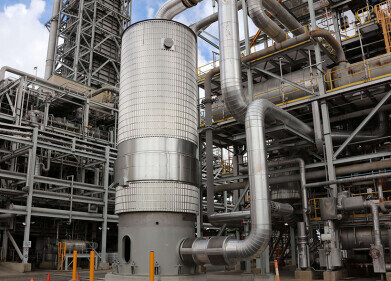Air Clean Up
How Will the EU Reduce Carbon Emissions?
Nov 13 2014
EU leaders have agreed to reduce greenhouse emissions gas by 40% by 2030, compared with levels in 1990. This is an incredibly important turn of events, especially when considering that more EU deaths are caused by illnesses related to air pollution than those as a result of road traffic accidents, according to a new report.
There was intense debate at the Brussels summit leading up to the decision, with some members arguing for the protection of their various interests. According to reporters, the final agreement was reached by accommodating the interests of members that wanted emissions cut further still, and those that depending heavily on coal. Leaders also agreed to increase renewable energy to 27% of the total energy produced, and to raise energy efficiency to a minimum of 27%.
Conflicts of interest
There were strong differences of opinion between EU countries regarding the depth of cuts to greenhouse gas emissions. Poland eastern European and central European member states voiced particular concern about the potentially negative effects of decarbonising its economy on its business growth, echoing concerns of many. However, following the summit, Herman Van Rompuy, President of the European Council stated that some poorer EU countries would receive financial assistance to reach these set targets.
The UK also opposed setting binding national targets for renewable energy such as wind, solar and hydroelectric energy, and has instead been focusing on shale gas and nuclear energy as alternatives to imported gas and oil.
Historical deal to reduce carbon emissions
Following the summit, Van Rompuy tweeted: "Deal! At least 40% emissions cut by 2030. World's most ambitious, cost-effective, fair #EU2030 climate energy policy agreed." Ed Davey, UK’s Energy Secretary described the deal as historic, stating: “It's good for consumers because we can decarbonise at the lowest possible cost using a diverse mix of technologies. And it's good for business as it provides the certainty they have been calling for to unlock billions in low carbon investment."
Despite the EU being set to meet its target to cut carbon emissions by 20% by 2020 compared with the levels in 1990, EU officials have stated that they would like to maintain a strong position running up to the December 2015 UN climate change conference in Paris.
Damian Grammaticas of the BBC reported that leaders recognised the need to rely less on energy sources from outside the EU in the light of recent crises in the Ukraine and in the Middle East, adding that they would now place increased pressure on big polluters such as China and India to follow suit.
However, environmentalist groups were disappointed with the extent of the deal, with Greenpeace’s Joris den Blanken referring to the agreement as “modest”, and the European Environmental bureau Secretary General, Jeremy Wates commenting: “Europe's leaders have failed their citizens and failed the world."
The impact of air pollution abatement
In a recent article, Flexibility is Key to Solving Air Pollution Abatement Challenges, we look at how the ever increasing pressure to reduce volatile organic compounds (VOCs) is making it more difficult for plant operators to determine the most suitable pollution system for their process. As the EU attempt to reduce carbon emissions, this will undoubtedly be a mounting difficulty.
Events
May 13 2024 Munich, Germany
May 23 2024 Beijing, China
May 23 2024 Beijing, China
Jun 10 2024 Algiers, Algeria
Jun 10 2024 Frankfurt, Germany














